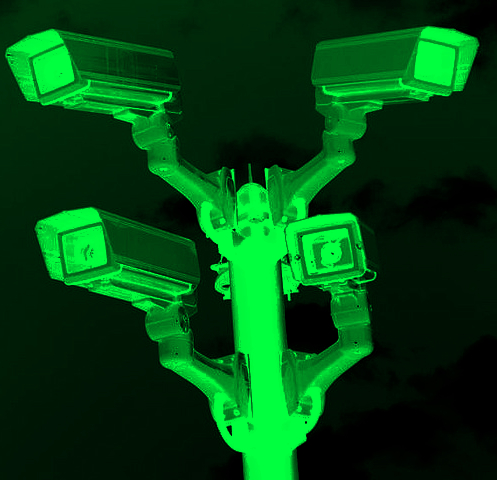Warning over cyber creep
 Australians have been warned about complacency over rapid growth in digital surveillance.
Australians have been warned about complacency over rapid growth in digital surveillance.
Saudi human rights activist and author Manal al-Sharif has discussed the dangers of “surveillance capitalism” and the weaponisation of social media in Australia.
Ms al-Sharif is also the manager of cybersecurity strategy at UNSW.
She says many Australians are unaware of the influence that tech and media monopolies are having on their activities online and their freedom of speech and expression.
“When I first came to Australia, I thought people were too complacent. Australian media is controlled by a few monopolies which creates this sense of fear, complacency and self-censorship,” Ms al-Sharif told a recent webinar.
“Living in a democracy is scary when tech manipulation becomes a form of soft oppression. People don’t realise they are being manipulated and that they are victims of persuasive technology. We think we have reached a conclusion from our own freedom of thinking. This is completely misleading.
“Once you go online and are facing a machine that understands who you are, what makes you tick and how to keep you engaged – there is no freedom of choice and freedom of thinking anymore.”
Ms al-Sharif does not have any social media accounts, as she knows they are a method of manipulation.
“Social media was once used to give people a voice in authoritarian regimes. That was taken away as soon as these authoritative regimes understood how to use social media in unfair ways,” she said.
“These companies have deep pockets to hire the best data scientists in the world. They use machine learning to understand and predict our behaviours. That’s what makes it so scary.
“It is not the information that is of such concern but rather the creation and weaponisation of these intimate profiles. We are living in an age of continuous surveillance.”
In recent weeks, Australia passed the Identify and Disrupt bill, which gives “extraordinary” new powers to the Australian Federal Police and the Australian Criminal Intelligence Commission.
The authorities can now access new warrants to access the computers and networks of those suspected of conducting criminal activity, modify or “disrupt” their data and take over their accounts to catch others.
Electronic Frontiers Australia policy team chair Angus Murray says the bill is just the latest element of a growing surveillance state.
“If it was a lone Act, it may not be as scary. But when you consider it alongside the full suite of power we’ve afforded law enforcement, the reality becomes more alarming,” Mr Murray said.
“The Identify and Disrupt bill is only one in a series of developments that were largely a reaction to the events of 9/11. However, a rapid expansion has occurred over the last five years.
“Since the metadata retention scheme came into force in 2015, we’ve seen much more intrusive powers arise, notably the Assistance and Access Act.
“The Identify and Disrupt bill is only the latest development in Australia.”
Mr Murray said the bill serves to “legitimise what is being done by the government”, and may damage trust in technology in general.
“Society is enhanced by dissenting views and the ability to have a robust discussion, even if the topic is unpalatable. My concern for the future is that we are seeing a situation where people are becoming less trustworthy of technology,” he said.
“Technology, because of these legislative powers, is then becoming less trusting of the consumers. This leads to a breakdown of trust on both sides.
“The government is opening the gate and tiptoeing along the edge of the line [to totalitarianism] that could very easily pass. If you don’t care about the impact now, you should care about how it could impact your children, or your friends’ children and the future of Australian democracy.”








 Print
Print